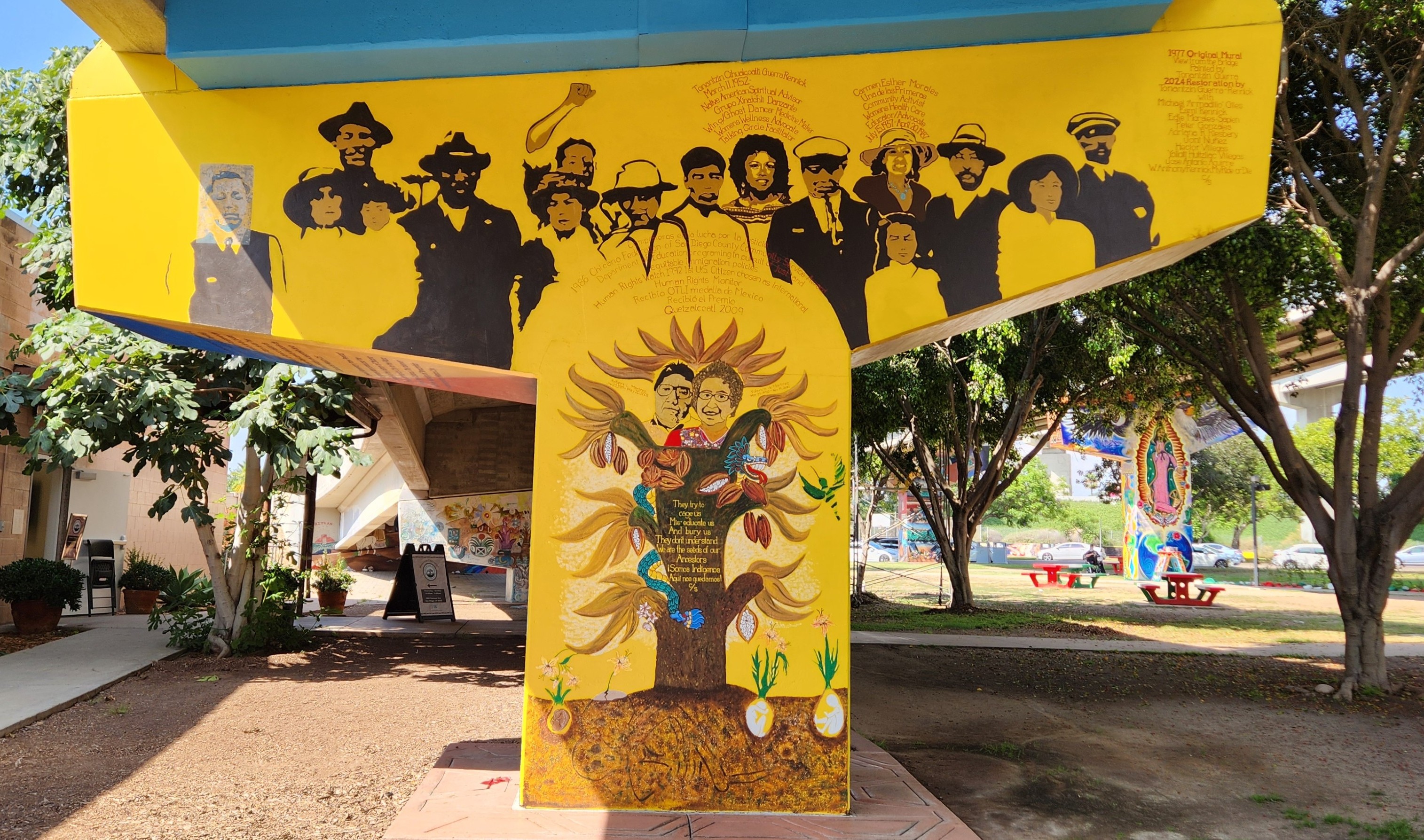|
Photo: Murals at Chicano Park, San Diego.
Photographer: Joseph Torres, SDS.
Centering Voices: Oral History as a Tool for Preservation
Thursday, October 2, 2025
3:00 p.m. - 4:30 p.m. ET
This presentation explores the vital role of oral histories in understanding and preserving the meaning of place. Many cultures have long-standing traditions of storytelling passed down through generations. Modern preservation research often centers on written records which can be biased, censored, or entirely absent, especially for marginalized communities. Focusing on physical spaces alone often leaves a gap in our preservation practice.
Oral histories offer a powerful way to challenge hegemonic narratives, correct historical omissions, and bring forward voices that have been silenced. They not only preserve physical spaces but also honor the people whose lived experiences give those places meaning, providing for more robust preservation projects overall. Join us as we reflect on how oral histories can transform our approach to preservation.
Learning Objectives:
1. Promoting Diversity and Inclusion in Oral History Projects
- Examine how oral histories can amplify marginalized voices and underrepresented communities.
- Discuss intentional strategies for identifying and engaging diverse narrators and stories.
- Explore how inclusive oral history practices contribute to a more multifaceted understanding of history.
2. Understanding the Significance of Oral Histories
- Analyze the importance of oral histories in preserving cultural heritage and historical narratives.
- Discuss how oral histories offer alternative perspectives, especially in cases where written records are limited, biased, or absent.
- Examine how language, dialect, and storytelling methods shape preservation narratives.
- Discuss how oral histories can inform preservation decisions and policy.
3. Preservation and Access Strategies
- Identify best practices for recording, preserving, and maintaining oral history projects; considering approaches to make oral history collections more inclusive and accessible to all audiences.
- Explore digitization, metadata standards, and archival techniques to ensure long-term preservation and accessibility.
- Discuss strategies for navigating and applying oral history work within contemporary challenges, including issues of censorship, contested narratives, and supporting advocacy through preservation.
Continuing Education Credits
1.5 LU/PDH
Accreditation guidelines dictate that CEU credit is only available to participants of the live program.
Can't join the webinar live? A limited-access recording of this session will be available exclusively to those who register for the webinar. Please note, per AIA guidelines, only participants of the live program are eligible for continuing education credits.
Registration Fees
- APT Members: $20
- Emerging Professionals: $15 $0*
- Students: $10 $0*
- Non-Members: $35
* Thanks to the generous support of the Preservation Fund of the National Trust for Historic Preservation, APT is pleased to offer this program at no cost to Student members and Emerging Professional members. Not a member? Learn how to join here.
Panelists:
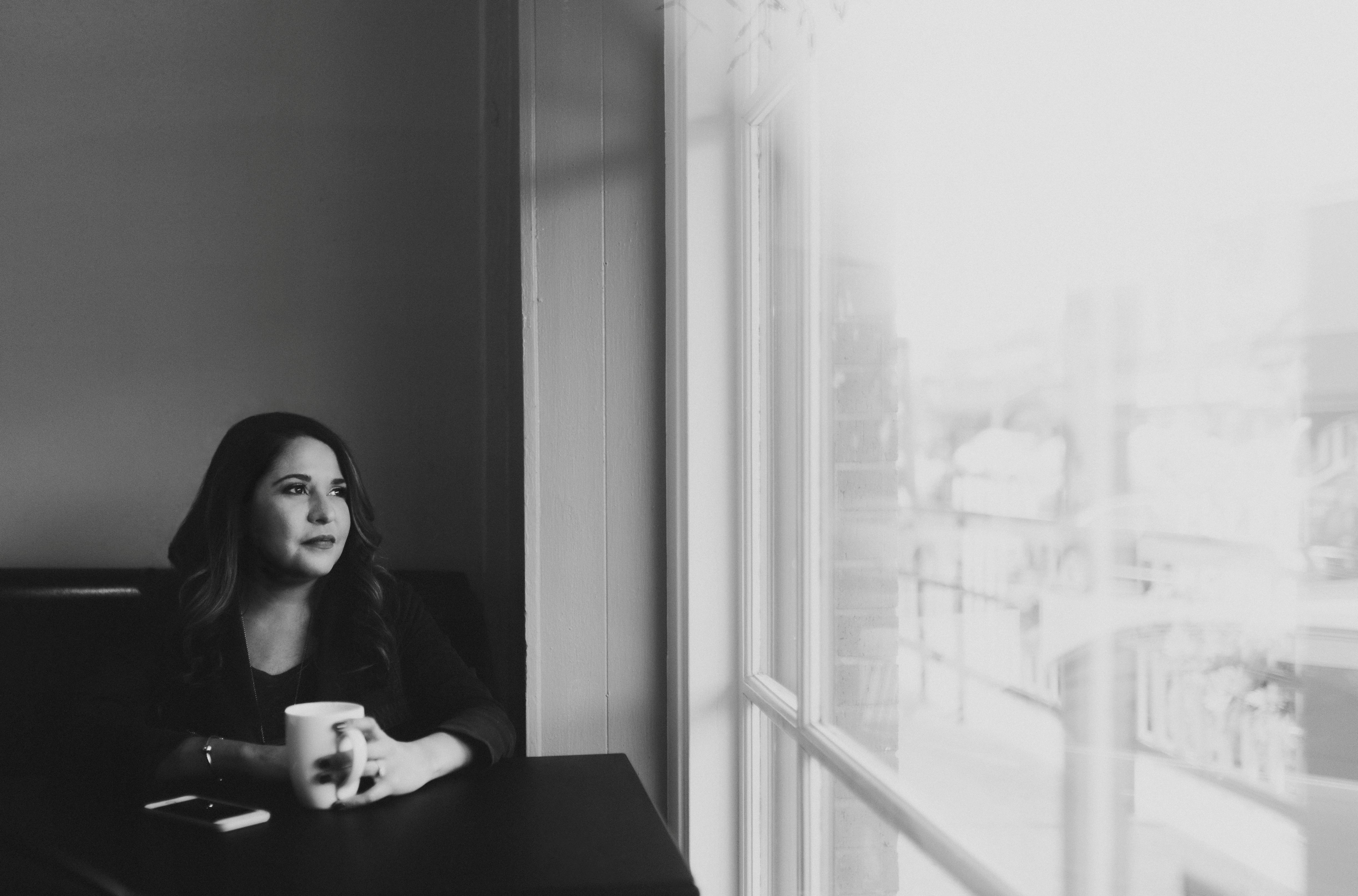 |
Sehila Mota Casper, Executive Director, Latinos in Heritage Conservation
Sehila Mota Casper the inaugural Executive Director for Latinos in Heritage Conservation, where she works to ensure that the preservation field is welcoming, fair, and rooted in community. She previously worked as a senior field officer for the National Trust for Historic Preservation and the City of Austin, where she championed a just preservation movement.
Over the past decade, she has organized national Latinx preservation conferences, led efforts to save National Treasure campaigns, such as the LULAC Council 60 Clubhouse and Rio Vista Farm, the first U.S. Bracero Reception and Processing Center. She serves on the board of the National Collaborative for Women’s History Sites, Preservation Texas, Texas Dance Hall Preservation, the Texas State Board of Review, and the Friends of the Texas Historical Commission. Sehila was a 2013 Texas Historical Commission Preservation Scholar and the recipient of the 2014 National Trust for Historic Preservation Mildred Colodny Diversity scholarship. Sehila is a graduate of Texas Woman’s University Department of Visual Arts and holds a Master of Fine Arts in Historic Preservation from Savannah College of Art and Design.
|
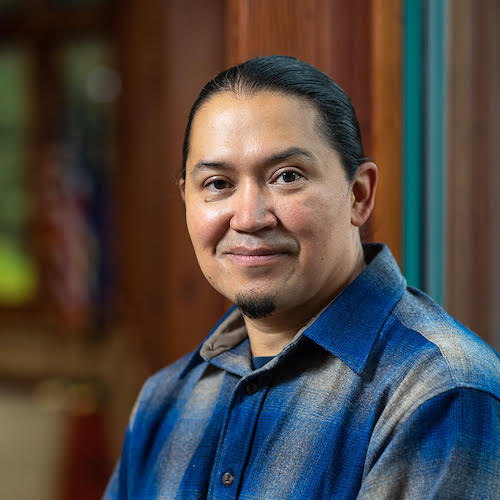 |
X̱'unei Lance Twitchell, M.F.A, Ph.D, University of Alaska Southeast
Dr. X̱ʼunei Lance Twitchell (Lingít, Haida, Yupʼik, Sami) is a distinguished scholar, poet, and advocate for Indigenous language revitalization. As a Professor of Alaska Native Languages at the University of Alaska Southeast, he has dedicated his career to preserving and promoting the Tlingit language through education, multimedia, and community engagement. His efforts include developing accessible language resources, such as online lessons and curricula, and collaborating with elders to document and translate oral traditions. Dr. Twitchell's work not only safeguards linguistic heritage but also enriches cultural narratives, making him a vital contributor to discussions on oral histories and Indigenous knowledge preservation.
|
| Moderator: |
|
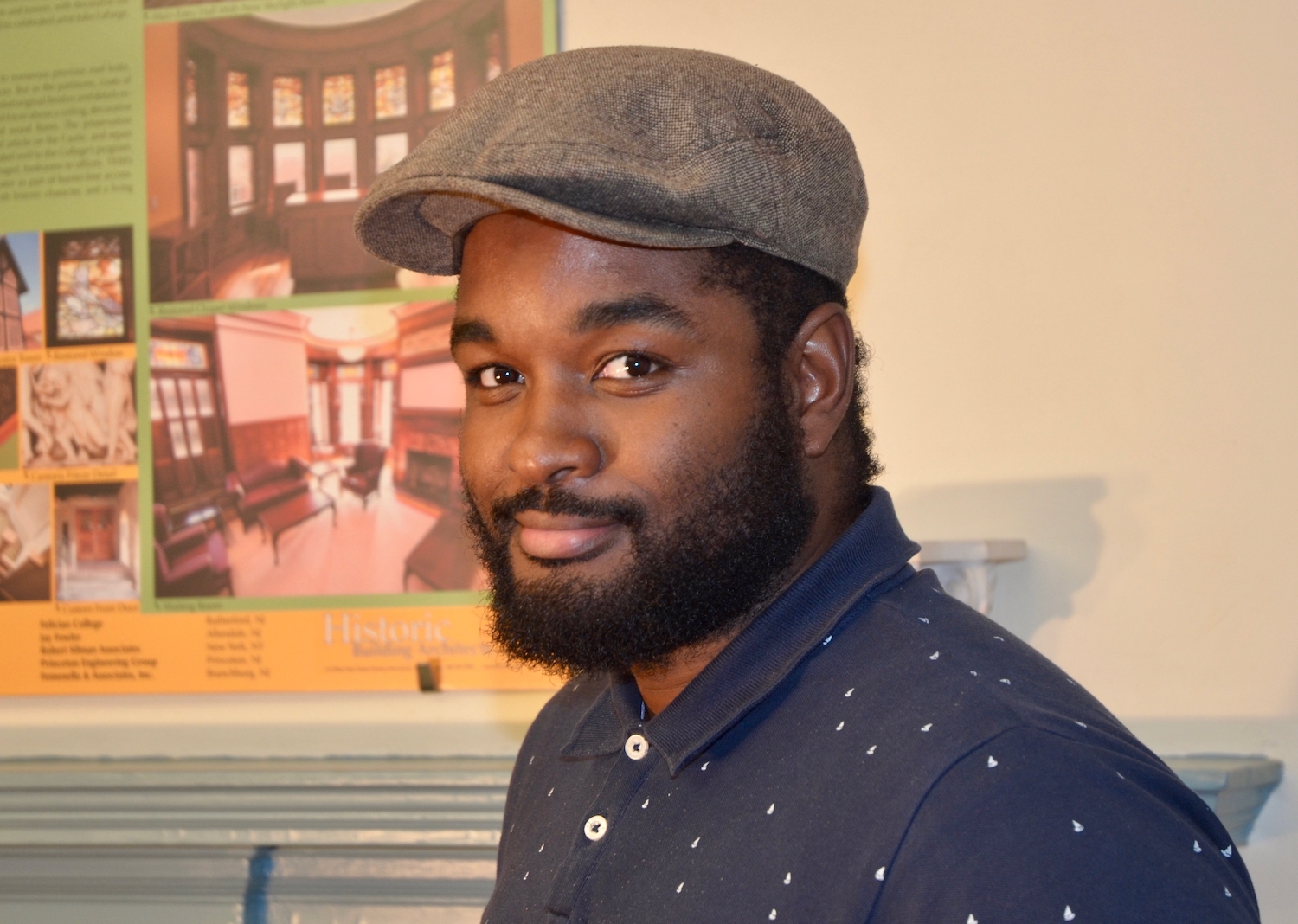 |
Ronnie Cameron, Jr., Project Manager, Historic Building Architects, LLC
Ronnie Cameron received his Bachelor of Architecture degree in 2013 from Drexel University Westphal College of Media and Arts in Philadelphia, PA. At HBA, Ronnie assists with the preparation of drawings and other construction documents, as well as with research, surveys, and project organization. Ronnie codeveloped multiple self-guided walking tours and also facilitates community meetings, vision planning workshops, tours and interactive historical experiences .Ronnie is a sUAS FAA Certified Pilot, responsible for the operation of HBA’s Small Unmanned Aircraft System. He is HBA’s in-house manager of IT software.
|
Presented by the Inclusion Advocacy Committee
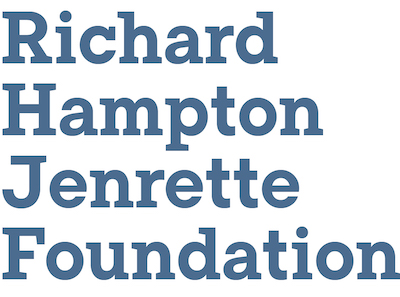 |
 |
|
Online Educational Content Sponsor
|
This project has been funded in part by a grant from the National Trust Preservation Fund of the National Trust for Historic Preservation. Specifically, in support of growing participation of students and emerging professionals in online programs. |
|
